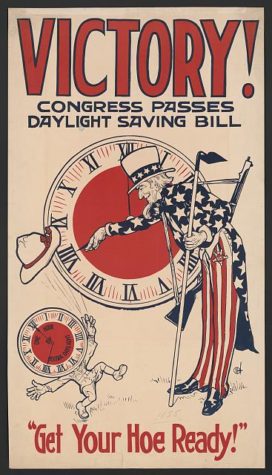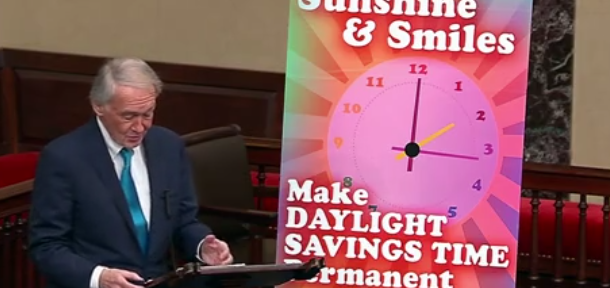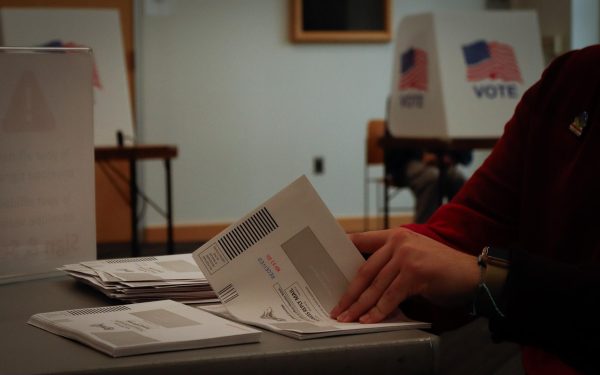All Your Daylight Saving Questions, Answered
On Tuesday, March 15, the United States Senate suddenly and unanimously approved a bill put forward by Senator Marco Rubio of Florida. Named the Sunshine Protection Act, the bill is aimed at making daylight saving time permanent across the country. If the bill is also approved by the House of Representatives, it would be signed by President Biden, and go into effect in November 2023.
An AP-NORC poll shows that 71% of Americans want either standard time or daylight savings time to be permanent, while only 28% voted to switch between the two.
Although the bill passed through the Senate quickly, many Americans still have questions about what exactly the bill would do, and how it would affect them.
What is daylight saving time, anyway?
At a very basic level, daylight saving time is meant to maximize the amount of daylight hours. Clocks are moved forward one hour in the summer, and put back an hour in the winter. The idea is credited to Benjamin Franklin, who realized he was wasting daylight hours in Paris by staying in bed. The idea was picked up again after the creation of transcontinental railroads in the 19th century, and their demand for standardized time. In 1918, the federal government took control of mandating time zones, and passed the first daylight savings bill as a way of conserving fuel during World War 1.

What would this bill do if passed?
Midwesterners are used to sunsets as early as 4 p.m. in the winter months, but with this new bill, the earliest sunset would occur around 5:30 p.m. However, people would be feeling the change when it comes to sunrise. In the winter, sunrises would occur after 8 a.m., 10 minutes after Ames High starts classes, and at about the same time the average high school in America starts classes. By passing this bill, many more students would be commuting to school in the dark.
Are there really any benefits to all of this?
One of the main arguing points in favor of daylight saving time was that it saves energy costs, but studies conflict as to whether that is actually true. Another main argument is that it benefits the economy.
The American Academy of Sleep Medicine supports ending daylight saving time, claiming that disrupting the body’s natural clock could cause an increased risk of stroke and cardiovascular issues, and could lead to more traffic accidents. The changing time also causes stress levels to rise in teenagers, and a noticeable increase in depression across all demographics.
Waking up with sunlight has been proven to have many benefits, and many people struggle to force themselves awake when it’s still dark out.
However, some sleep professionals say that standard time, not daylight saving time, should become permanent. The American Academy of Sleep Medicine issued a warning after the Senate approved the bill, saying that the proposal overlooks potential health risks. They argued that standard time is more similar to people’s circadian rhythm, and that the disruption of that rhythm, caused by daylight saving time, has an impact on health issues, including obesity and depression.
Haven’t we done this before?
Actually, we have. America tried to be done with daylight saving in 1974, with disastrous results. Car crashes occurred more often, and on the first day the act was in place, flights from Puerto Rico, which did not change time, were missed. Congress voted to repeal the act after 10 months due to public backlash.
When the bill was originally passed, an estimated seventy-nine percent of people favored the policy.
Moving forward, Representative Buchanan of Florida said he would send a letter to House Speaker Nancy Pelosi, asking for immediate consideration of the bill. However, it is currently unclear when the House will introduce the bill. Speaker Pelosi has said that she supports the bill, but that the House currently has larger issues to deal with, particularly Russia’s invasion of Ukraine and rising gas prices.
Your donation will support the student journalists of Ames High School, and Iowa needs student journalists. Your contribution will allow us to cover our annual website hosting costs.

Lily is a senior who currently serves as Editor-in-Chief. On campus, she has been involved in band, pep band, and orchestra. She enjoys watching soccer...


























